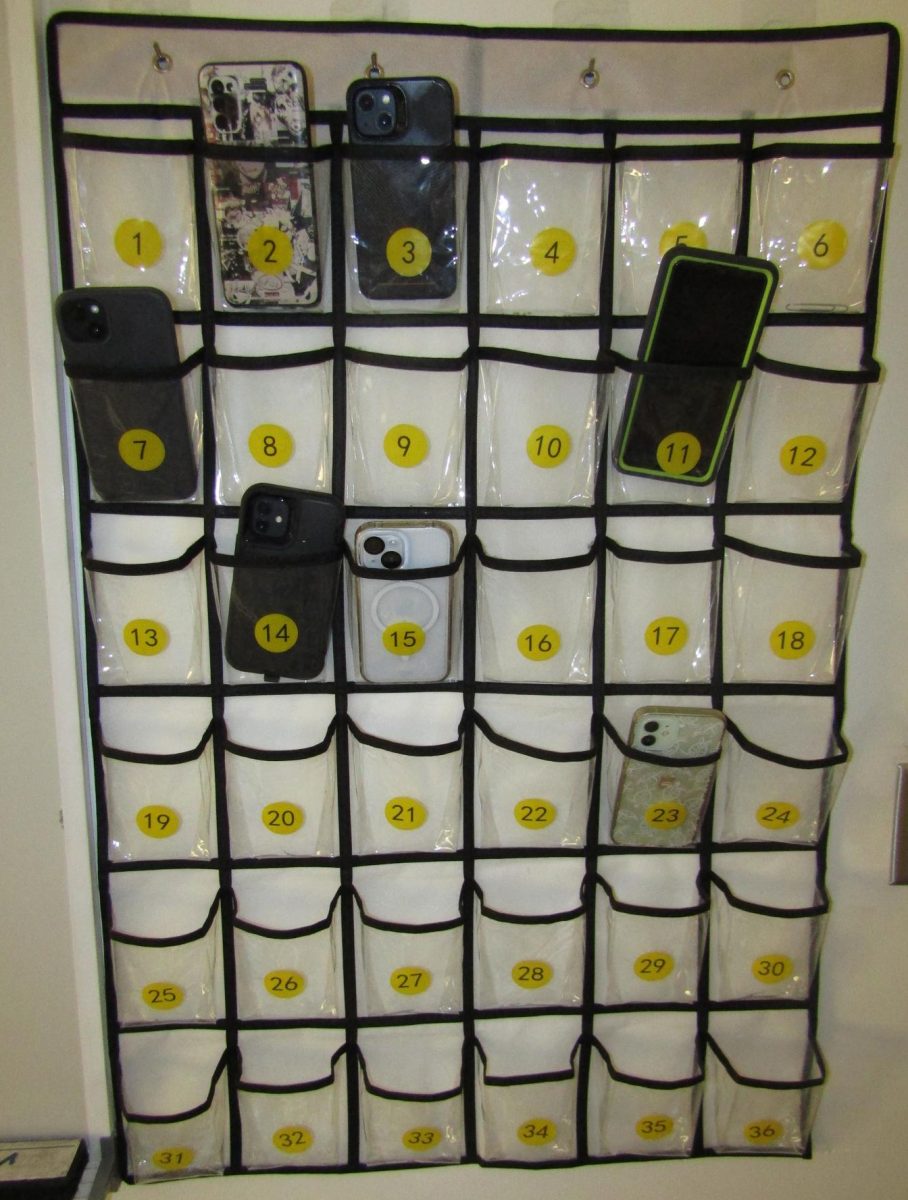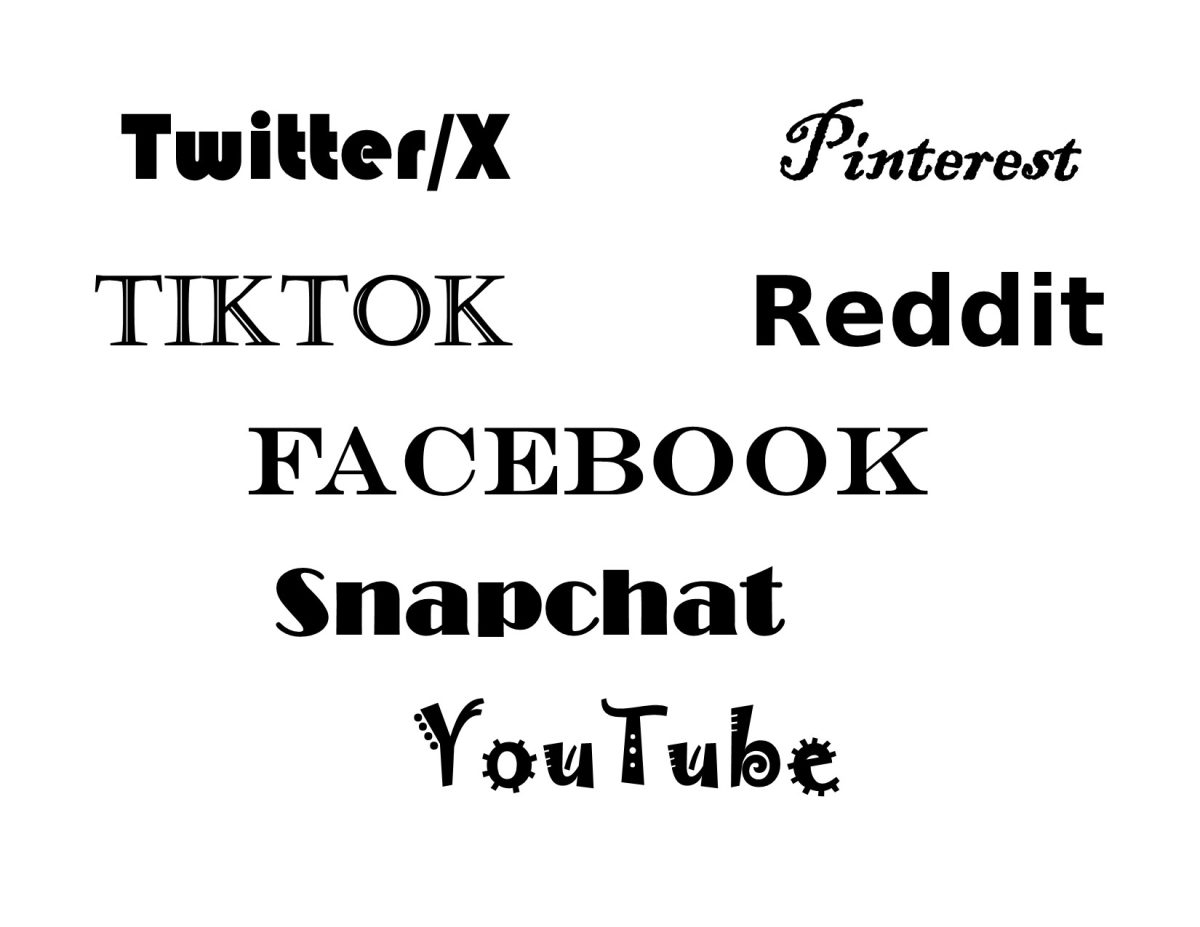Dear America: Social media does more harm than good
Are your online habits dangerous?
May 17, 2022
Social media is a convenient way for society to communicate. Users follow news updates and celebrities they admire. Businesses use social media for marketing and networking. Friends and family can post updates on their lives to stay connected to loved ones, no matter the distance.
As of February 2021, 84% of adults under 30 use social media.
Recognizing the obvious advantages of using social media, with the amount of time teenagers spend on their phones, should society begin to question the toll this puts on mental health?
Social media urges teenagers to strive for validation. Comments and likes are aspects of social media that make users feel valued. This is not a suitable way to show admiration.
Teenagers waste time comparing their likes to others, and feel defeated and meaningless when they do not have as many likes as their companion. There is simply no need to compare their posts to others – confidence must be built within. When someone’s ego is built on compliments, it will shatter with criticism.
According to the American Association of Suicidology, suicide rates of 10-14 year olds have grown over 50% in the last three decades.
Clearly, there are other contributing factors besides social media that affect the mental health of children. However, social media has been proven to be the cause of low self esteem and constant cyberbullying, and likely a factor into this terrifying statistic. It is nearly impossible to find a viral video with 100% positive comments, especially on platforms like Instagram and TikTok.
A pattern of regularly using social media can create a quality of self absorption within users. Sharing endless selfies and every opinion on social media can create an unhealthy self-centeredness in life.
Some Twitter users post ten times a day, sharing every thought that pops into their head in hopes of sharing their common experience with others.
On the other hand, passively scrolling through posts or anonymously following others on social media does not provide any meaningful sense of relation. It may even increase the feeling of isolation.
The idea of social media is not to solely observe others’ exchanges, but instead to contribute to the conversation. There is no point being there only to sit on the sidelines and watch.
Between proven results of depression, anxiety, low self esteem, FOMO (fear of missing out), self absorption, isolation, and countless more damaging qualities, society must consider the negative outcomes of social media.
There is plenty to say about how social media has led to countless positive interactions, funny videos being shared, and helpful business management. Lots of great things have come out of social media such as unifying trends and the instantaneous spread of information.
Most recently, during the Oscars, an incredibly well-known actor, Will Smith, attacked Chris Rock on stage. Within minutes, the world was tweeting about it, memes were being created, and the world laughed together almost like it was an inside joke that all internet users were part of.
It would be ignorant to say that there has not been mostly good along with the bad.
There is also something to say about teenagers’ constant urge to check social media. Most leave their phone close in proximity during the night. Often, it is within reach while laying flat on their bed. “There is a social norm to respond to messages quickly, and [teenagers] don’t want to violate that norm by sleeping through their messages.”
Social media is simply too accessible and teenagers feel a certain sense of detachment without their phones. This is a dangerous addiction to have at such a young age.
An anonymous Sutton High student confessed he once spent 13 hours of the day on his phone. For reference, if he got on his phone at 9:00 in the morning and never took a break, he would not be off their phone until 10:00 at night.
What a horrifying waste of a day.
“According to a new study by Harvard University, self-disclosure on social networking sites lights up the same part of the brain that also ignites when taking an addictive substance.” Dopamine is a neurotransmitter in the brain that plays a role in pleasure. It is a rewarding feeling when dopamine is released, and for people who use social media to an addictive extent, that feeling of positive reinforcement is received whenever they check their phones.
Social media has plenty of benefits; but with young adults joining the internet, there is caution that needs to be taken. It is essential that all teenagers reexamine their online habits and find a healthy balance between the digital world and reality.







































Mrs. Raymond • May 17, 2022 at 9:05 am
Excellent article! I do agree with everything you wrote about. I’m hoping that more people see this as an issue. Well done!